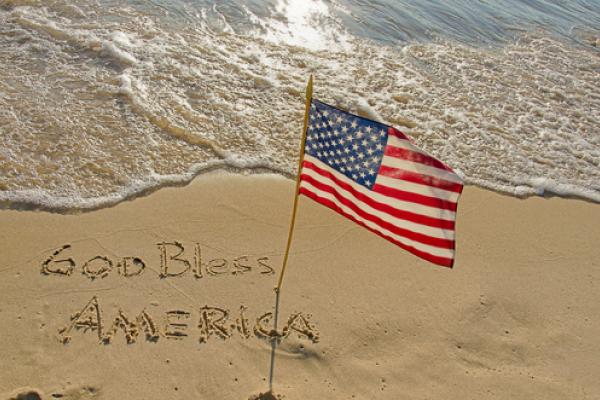Right-wing Christians and the politicians who pander to them like to say that the United States was, is and always should be a “Christian nation.”
Why, then, are they so obsessed about money and political power and so determined to make people afraid?
After all, Jesus spent an estimated two-thirds of his teaching time on wealth and power. His message was clear, if radical: Give wealth away rather than build bigger barns. Submit to others rather than seek power. Love your enemies rather than smite them.
Moreover, his one new commandment was equally clear: Don’t be afraid. Live without fear. Live in trust and confidence. Live in harmony. Make peace. But whatever happens, don’t be afraid.
Instead of preaching a gospel of self-sacrifice and generosity, right-wing Christians support the mega-wealthy who yearn to stifle democracy and move us further toward plutocracy: Keep the riffraff from voting. Keep alternative views out. Live in the bubble of like-minded people, not the marketplace of ideas and diversity where Jesus lived.
Instead of proclaiming confidence in God’s care, they push fear: fear of immigrants, fear of the dark-skinned, fear of Islam, fear of Ebola, fear of education, fear of honesty, fear of the poor, fear of gays and lesbians, fear of women, fear of the gospel that Jesus actually proclaimed.
Such attitudes are nothing new in human experience. The pathway to power is often paved with greed and fear. Nor is it unusual for religion to carry the torch for repression. Religious leaders generally are as power-hungry as anyone; our history has occasional episodes of generosity swallowed by long periods of darkness.
Moreover, such attitudes have their place in American democracy. Ours is — or should be — an open society where all ideas are welcome, all voices heard and all citizens free to pursue their self-interest, as they define it. Want to pander to the wealthy in the hope of catching a few crumbs under their tables? That is your right. If you want to huddle in armed camps and demonize others, that, too, is your right.
But you don’t get to call it “Christian.” The gospel of wealth and the politics of fear couldn’t be further from the Christianity that Jesus actually set in motion.
Christianity has many viewpoints, from conservative to liberal, traditional to contemporary, institutional to personal, hierarchical to radically independent, wildly exuberant to monastically quiet.
Ours is a broad tent, capable of covering humanity in its full diversity, and that tent is filled with both sinners and saints — mostly sinners.
No one gets to say theirs is the only “true faith.” No one gets to demonize other pathways, or vote them off the island, as it were. There is no single litmus test. There are only the manifold ways God seeks us and we seek God.
As an election season of sweeping ugliness winds to a close, we need to remember that no candidate is the “Christian candidate,” no policy is the “Christian policy,” and certainly no package of fears is an appropriate “Christian response” to difficult times.
Calling one’s campaign “Christian” doesn’t make it so. Appealing to Christian voters doesn’t make that appeal synonymous with the gospel.
The United States isn’t a Christian nation. It never has been. And if people insist that their religious views should be normative for all citizens, they are perverting what Jesus said and did.
Tom Ehrich is a writer, church consultant and Episcopal priest based in New York. Via RNS.
Got something to say about what you're reading? We value your feedback!
